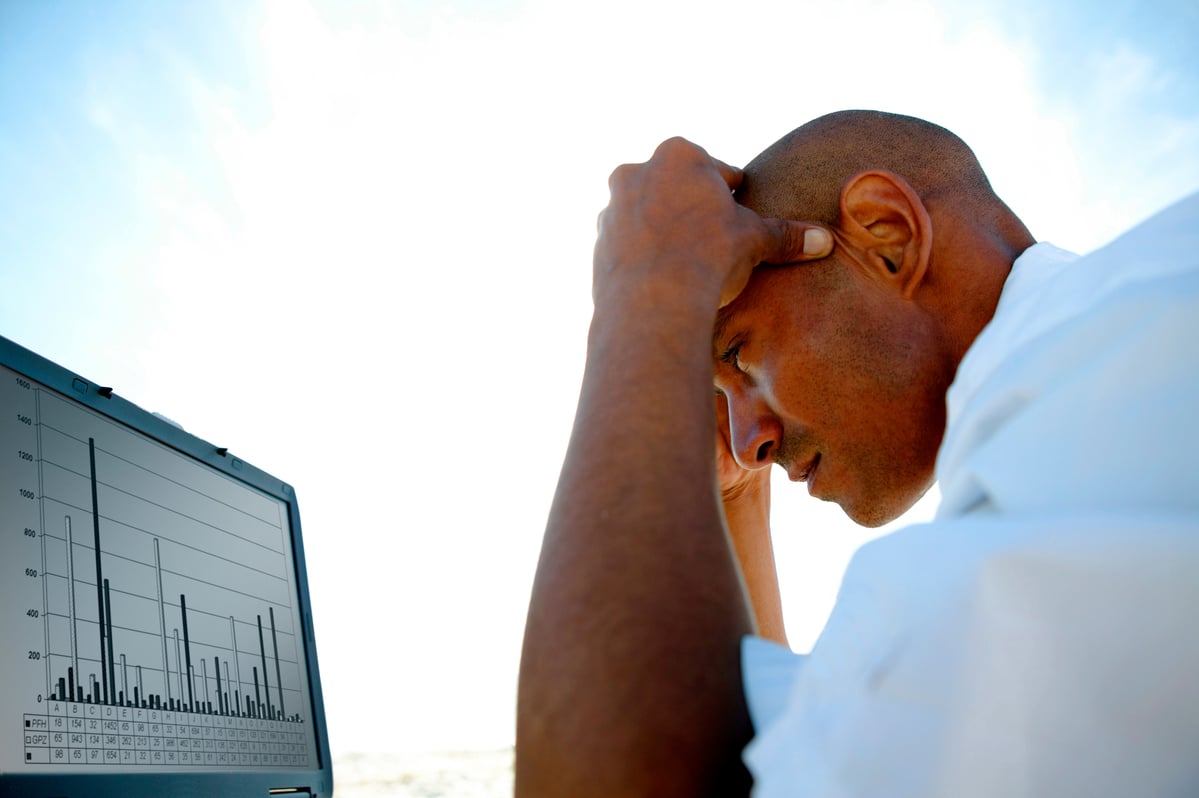What happened
Retail stocks were falling broadly Wednesday after the Census Bureau reported that March retail sales plunged 8.7% from February, or 3.1% when backing out automobiles and gasoline.
The report confirmed what investors already knew: that the coronavirus is having a significant effect on the retail sector as a number of chains were forced to close stores toward the end of March. Among the losers Wednesday were Walgreens Boots Alliance (WBA +0.00%), The Michaels Companies (MIK +0.00%), and Boot Barn Holdings (BOOT +1.68%), which finished the session down 6.3%, 15.9%, and 10%, respectively. The S&P 500, meanwhile, closed down 2.2%.

Image source: Getty Images.
So what
The Census Bureau's report showed a clear divide in retail spending last month. Sales at grocery stores surged 27% from February as Americans stocked up on goods like food and cleaning products in response to stay-at-home orders. On the other hand, sales at apparel stores fell more than 50%, weighing on chains like Western-wear purveyor Boot Barn.
Sales at health and personal-care stores rose 4.2%, which would seem to favor pharmacy operators like Walgreens. But investors had perhaps expected more, given the fact that Americans were stocking up on items like medicine and hand sanitizer.
In sporting goods, hobby, musical instruments and bookstores, the broad category that arts-and-crafts retailer Michaels falls into, sales fell 23%.
As for company-specific news yesterday, Boot Barn shares were downgraded by Susquehanna from neutral to negative as analyst Josh Poser noted elevated inventory levels, a decision to keep stores open, a lack of clarity on store closures, and the withdrawal of its guidance. Poser also lowered his price target on the stock to $11, representing 26% downside from its closing price Wednesday.
Boot Barn said last week that it had reduced hours at stores as a result of decreased traffic and COVID-19, and that it had furloughed 40% of its staff. It also pulled its guidance, saying the pandemic was having a material effect on its performance, as with much of the apparel industry.
Walgreens priced a $1.5 billion debt offering on Monday that was completed on Wednesday, and the stock's sell-off yesterday may signal weak demand for its debt as Walgreens was already struggling before the coronavirus, since the company was only aiming for flat earnings growth.
Like Boot Barn, Michaels has left many of its stores open, though the company is almost certainly seeing a sharp drop in sales from the pandemic. The retailer, which carries a heavy debt burden at $2.6 billion, may also be affected by news that J.C. Penney is considering a bankruptcy filing, which could be the first of a wave of such moves in the industry.
Now what
There's no question that the situation for these retailers is getting worse. Store closings and furloughs in the industry are spreading, and the U.S. is lurching deeper into a recession as millions more Americans file for unemployment each week.
Walgreens should be able to fare better than the other two as a pharmacy chain that consumers depend on even in a bad economy. Michaels and Boot Barn won't have it so easy since both retailers are highly discretionary and depend on Americans being employed. Boot Barn sells work wear, and Michaels derives nearly half of its revenue from holiday spending in the fourth quarter.
Though both of those retailers were solidly profitable before the crisis, they are facing significant challenges that will only get worse the longer that lockdown-style conditions prevail.







